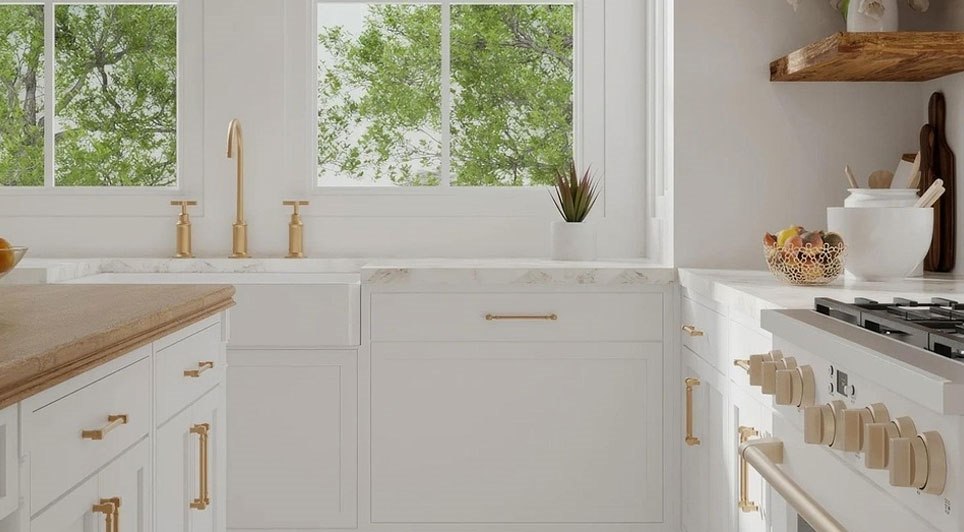25/06/2025
Multifunctional Living Spaces: How NI Homes Are Adapting To Digital Lifestyles
In recent years, homes in Northern Ireland have undergone a fundamental transformation. No longer just places of rest, they’ve become dynamic environments where work, play, learning, and wellness coexist, often in the same space.
This change is being driven by a mix of necessity and innovation, with remote work surging, digital technologies maturing, and families re-evaluating how to best use their living areas. Whether it’s in Belfast’s urban flats or rural countryside homes, the shift toward multifunctional living spaces is redefining what it means to live well in a digital age.
Local Priorities: Flexibility Without Sacrificing Identity
Unlike the high-rise apartments of London or compact flats of Dublin, many homes in Northern Ireland were traditionally built with more defined spaces. Separate kitchens, lounges, and dining rooms reflected an older rhythm of life. However, today’s demand for flexibility is challenging that legacy. Homeowners are knocking through walls, merging kitchens with living areas, and turning neglected corners of their homes into high-functioning zones.
Even as layouts change, however, identity still matters. The typical Northern Irish household still prioritises comfort and family life. Instead of abandoning tradition, many are blending the old and new. A Victorian home in Belfast, for example, may retain its fireplace and bay window, but it might also now feature built-in shelving to hold routers, charging hubs, and projectors for hybrid work-leisure routines. Functionality is the goal, but warmth and character remain essential.
Customisation has become central. Instead of following Pinterest trends blindly, people are creating spaces based on their personal routines. Some are investing in double-sided bookcases to divide rooms without building walls, while others are repurposing sheds and garages into digital work pods that are insulated for year-round use.
Connectivity Is the New Foundation
No multifunctional space can operate without a strong digital infrastructure. This is where Northern Ireland’s efforts to roll out full-fibre broadband and improve mobile coverage come into play. These upgrades are not just technical milestones; they are cultural enablers. High-speed internet has unlocked new ways for people to live, facilitating everything from virtual classrooms for children to Teams calls for parents and Zoom choirs for retirees.
Many homes now include multiple workstations, even in small bungalows or semis, so family members can function independently without disturbing one another. The traditional idea of a “home office” with a door is being replaced by a more layered approach, with desks in alcoves, folding setups in wardrobes, or rolling carts that transform a hallway into a productive zone. It’s not just about work, however. Entertainment also depends on flawless connectivity. A family may simultaneously stream Netflix in one room, host a digital board game night in another, and attend a fitness class in the garage. Even activities that were once considered niche, like interactive cooking sessions or live table games, are now part of domestic life and integrated seamlessly through smart TVs, tablets, and Bluetooth audio systems.
Design for Movement, Not Just Aesthetics
Multifunctionality requires more than clever furniture; it calls for spatial choreography. Instead of permanent fixtures, today’s designs favour movement. Foldable partitions, rolling desks, mobile lighting rigs, and dual-function seating are gaining traction. The focus isn’t just on making a room look good; it’s also about making it respond to changing needs within a single day.
Northern Irish designers are leaning into this demand. Local carpenters are reporting increased requests for custom cabinetry with built-in monitors, hidden power sockets, and adjustable height options. There’s also a growing market for hybrid furniture that blends form and flexibility, such as ottomans that house VR gear or dining tables with pop-up screens for video calls.
Sound management has become critical. With multiple people working and living in the same space, acoustic design is no longer a luxury. Soft furnishings, layered rugs, sound-dampening curtains, and even strategically placed indoor plants are helping to reduce echo and noise transfer in open-plan layouts.
Community, Sustainability, and the Bigger Picture
One of the most unique aspects of this digital adaptation is how closely it remains tied to community. Rather than isolating people, Northern Ireland’s hybrid homes are supporting new forms of connection among neighbours. Local councils have reported increased participation in digital forums, remote volunteering, and neighbourhood Zoom meetups. All of this is made possible by the multifunctional flexibility of people’s homes.
Sustainability is another key layer. Many homeowners are using this opportunity to invest in low-impact materials, energy-efficient appliances, and solar panels. The idea is simple: if the home is going to carry more weight, whether it’s in terms of work, leisure, or learning, it should do so without increasing its environmental footprint. Multifunctional living isn’t just about convenience; it’s about resilience and responsibility.
Government support has helped. From energy grants to broadband subsidies in rural areas, policies are encouraging this domestic evolution. Architects and builders now factor digital adaptability into planning applications, and estate agents report that buyers are increasingly asking about home-office potential and Wi-Fi strength before making offers.
As this transition continues, it will be interesting to see how Northern Ireland continues to show the world how homes can evolve without losing their soul.
This change is being driven by a mix of necessity and innovation, with remote work surging, digital technologies maturing, and families re-evaluating how to best use their living areas. Whether it’s in Belfast’s urban flats or rural countryside homes, the shift toward multifunctional living spaces is redefining what it means to live well in a digital age.
Local Priorities: Flexibility Without Sacrificing Identity
Unlike the high-rise apartments of London or compact flats of Dublin, many homes in Northern Ireland were traditionally built with more defined spaces. Separate kitchens, lounges, and dining rooms reflected an older rhythm of life. However, today’s demand for flexibility is challenging that legacy. Homeowners are knocking through walls, merging kitchens with living areas, and turning neglected corners of their homes into high-functioning zones.
Even as layouts change, however, identity still matters. The typical Northern Irish household still prioritises comfort and family life. Instead of abandoning tradition, many are blending the old and new. A Victorian home in Belfast, for example, may retain its fireplace and bay window, but it might also now feature built-in shelving to hold routers, charging hubs, and projectors for hybrid work-leisure routines. Functionality is the goal, but warmth and character remain essential.
Customisation has become central. Instead of following Pinterest trends blindly, people are creating spaces based on their personal routines. Some are investing in double-sided bookcases to divide rooms without building walls, while others are repurposing sheds and garages into digital work pods that are insulated for year-round use.
Connectivity Is the New Foundation
No multifunctional space can operate without a strong digital infrastructure. This is where Northern Ireland’s efforts to roll out full-fibre broadband and improve mobile coverage come into play. These upgrades are not just technical milestones; they are cultural enablers. High-speed internet has unlocked new ways for people to live, facilitating everything from virtual classrooms for children to Teams calls for parents and Zoom choirs for retirees.
Many homes now include multiple workstations, even in small bungalows or semis, so family members can function independently without disturbing one another. The traditional idea of a “home office” with a door is being replaced by a more layered approach, with desks in alcoves, folding setups in wardrobes, or rolling carts that transform a hallway into a productive zone. It’s not just about work, however. Entertainment also depends on flawless connectivity. A family may simultaneously stream Netflix in one room, host a digital board game night in another, and attend a fitness class in the garage. Even activities that were once considered niche, like interactive cooking sessions or live table games, are now part of domestic life and integrated seamlessly through smart TVs, tablets, and Bluetooth audio systems.
Design for Movement, Not Just Aesthetics
Multifunctionality requires more than clever furniture; it calls for spatial choreography. Instead of permanent fixtures, today’s designs favour movement. Foldable partitions, rolling desks, mobile lighting rigs, and dual-function seating are gaining traction. The focus isn’t just on making a room look good; it’s also about making it respond to changing needs within a single day.
Northern Irish designers are leaning into this demand. Local carpenters are reporting increased requests for custom cabinetry with built-in monitors, hidden power sockets, and adjustable height options. There’s also a growing market for hybrid furniture that blends form and flexibility, such as ottomans that house VR gear or dining tables with pop-up screens for video calls.
Sound management has become critical. With multiple people working and living in the same space, acoustic design is no longer a luxury. Soft furnishings, layered rugs, sound-dampening curtains, and even strategically placed indoor plants are helping to reduce echo and noise transfer in open-plan layouts.
Community, Sustainability, and the Bigger Picture
One of the most unique aspects of this digital adaptation is how closely it remains tied to community. Rather than isolating people, Northern Ireland’s hybrid homes are supporting new forms of connection among neighbours. Local councils have reported increased participation in digital forums, remote volunteering, and neighbourhood Zoom meetups. All of this is made possible by the multifunctional flexibility of people’s homes.
Sustainability is another key layer. Many homeowners are using this opportunity to invest in low-impact materials, energy-efficient appliances, and solar panels. The idea is simple: if the home is going to carry more weight, whether it’s in terms of work, leisure, or learning, it should do so without increasing its environmental footprint. Multifunctional living isn’t just about convenience; it’s about resilience and responsibility.
Government support has helped. From energy grants to broadband subsidies in rural areas, policies are encouraging this domestic evolution. Architects and builders now factor digital adaptability into planning applications, and estate agents report that buyers are increasingly asking about home-office potential and Wi-Fi strength before making offers.
As this transition continues, it will be interesting to see how Northern Ireland continues to show the world how homes can evolve without losing their soul.
Related Northern Ireland News Stories
Click here for the latest headlines.
17 May 2018
Hundreds Of New Homes To Be Developed In Co Down
Approximately 50 construction jobs are to be created as part of a £50million project to develop 900 new homes in Comber, Co Down. Northern Ireland homebuilders Hagan Homes has started construction work on the first phase of the 'Enler Village' site on the Newtownards Road, which includes the development of 17 new homes.
Hundreds Of New Homes To Be Developed In Co Down
Approximately 50 construction jobs are to be created as part of a £50million project to develop 900 new homes in Comber, Co Down. Northern Ireland homebuilders Hagan Homes has started construction work on the first phase of the 'Enler Village' site on the Newtownards Road, which includes the development of 17 new homes.
08 September 2022
Four Homes Attacked In Maghera
Four homes have been attacked in what police are describing as a "sectarian hate crime" in Maghera. The incidents occurred in the Upperlands area on Wednesday night. Three masked men, one armed with a stick, had broken the front living room windows of four homes while damaging the doors on three of the properties.
Four Homes Attacked In Maghera
Four homes have been attacked in what police are describing as a "sectarian hate crime" in Maghera. The incidents occurred in the Upperlands area on Wednesday night. Three masked men, one armed with a stick, had broken the front living room windows of four homes while damaging the doors on three of the properties.
26 October 2022
New £750,000 Living Places and Spaces Fund Announced
A second £750,000 Living Places and Spaces Fund has been announced to support local communities to create more sustainable and resilient community spaces which not only improve the environment but increase awareness of the benefits of blue green infrastructure.
New £750,000 Living Places and Spaces Fund Announced
A second £750,000 Living Places and Spaces Fund has been announced to support local communities to create more sustainable and resilient community spaces which not only improve the environment but increase awareness of the benefits of blue green infrastructure.
04 October 2021
£500,000 Living Places And Spaces Grant Scheme Announced
A £500,000 Living Places and Spaces grant scheme has been established by Infrastructure Minister Nichola Mallon, using her Blue Green Infrastructure fund. The fund will allow local communities to create their own green space in the form of living walls, allotments, rain gardens, pocket parks and forest trails, opening for applications in November.
£500,000 Living Places And Spaces Grant Scheme Announced
A £500,000 Living Places and Spaces grant scheme has been established by Infrastructure Minister Nichola Mallon, using her Blue Green Infrastructure fund. The fund will allow local communities to create their own green space in the form of living walls, allotments, rain gardens, pocket parks and forest trails, opening for applications in November.
18 May 2021
New Digital Transformation Programme Announced
A new Digital Transformation Programme for Northern Ireland has been announced to help businesses enhance their productivity and digital capabilities.
New Digital Transformation Programme Announced
A new Digital Transformation Programme for Northern Ireland has been announced to help businesses enhance their productivity and digital capabilities.
-




 Northern Ireland WeatherToday:A sunny but frosty start for many. However cloud increases by midday with a few showers reaching the north coast, these mostly light but spreading inland this afternoon. Chilly. Maximum temperature 8 °C.Tonight:A rather cloudy evening with scattered showers. Becoming drier through the night with some good clear spells developing and a patchy frost away from coasts. Minimum temperature 0 °C.
Northern Ireland WeatherToday:A sunny but frosty start for many. However cloud increases by midday with a few showers reaching the north coast, these mostly light but spreading inland this afternoon. Chilly. Maximum temperature 8 °C.Tonight:A rather cloudy evening with scattered showers. Becoming drier through the night with some good clear spells developing and a patchy frost away from coasts. Minimum temperature 0 °C.


